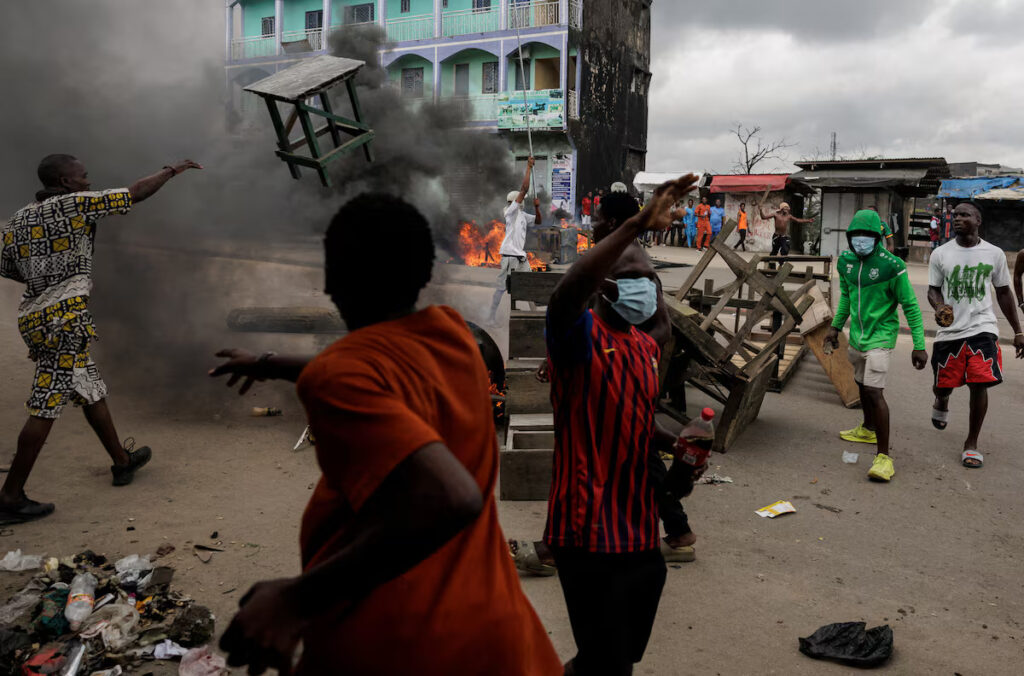Cameroon’s President Paul Biya, the world’s oldest serving ruler, has secured an eighth consecutive term in office, according to official results announced Monday, a victory that has triggered violent protests and renewed allegations of election fraud across the country.
The 92-year-old leader, who has ruled the Central African nation since 1982, was declared the winner of the October 12 presidential election with 53.66% of the vote, defeating opposition candidate Issa Tchiroma Bakary, who garnered 35.19%.
Biya, whose new seven-year mandate could see him in power until nearly age 100, said the people had “once again placed their trust” in his leadership.
“My first thoughts are with all those who have unnecessarily lost their lives as a result of the post-election violence,” he wrote on social media platform X, expressing regret over the unrest.
In Douala, Cameroon’s commercial capital, clashes broke out shortly after the results were announced. Supporters of Tchiroma, armed with sticks and stones, barricaded roads with debris and burning tyres, chanting that the vote had been stolen.
Police responded with tear gas, dispersing crowds as smoke filled the air.

Supporters of the Cameroon opposition candidate Issa Tchiroma react as they clash with security forces during a protest after the Constitutional Council declared President Paul Biya the winner of the October 12 presidential election in Douala, Cameroon, October 27, 2025. REUTERS/Zohra Bensemra
“Everyone knows the majority voted for Issa Tchiroma Bakary,” said one protester. “It is inadmissible that President Paul Biya won in certain war zones.”
The opposition reported four deaths over the weekend in Douala and said two more people were shot and killed outside Tchiroma’s residence in the northern city of Garoua on Monday. Reuters could not independently verify the reports.
Businesses and schools in several cities remained closed, and riot police continued patrols amid fears of further violence.
Analysts say Biya’s contested victory leaves him with “a notably shaky mandate.”
“Many of his own citizens don’t believe he won the election,” said Murithi Mutiga, Africa Program Director at the International Crisis Group. “We call on Biya to urgently initiate a national mediation to prevent further escalation.”
Francois Conradie, a political economist at Oxford Economics, warned that unrest is likely to intensify “as Cameroonians widely reject the official result,” adding that Biya’s government “cannot last much longer without reforms.”
The government has dismissed accusations of vote-rigging and urged calm, insisting the election was conducted transparently.
Biya’s decades-long rule has been marked by economic stagnation, corruption, and violent separatist conflicts in Cameroon’s Anglophone regions. In 2008, he abolished term limits, allowing himself to run indefinitely.
His longevity in power is emblematic of a regional trend: Togo’s president is 86, and Ivory Coast’s president, 83, recently secured another term. But even within Biya’s own family, fatigue with his leadership has surfaced, his daughter Brenda Biya briefly posted a TikTok video urging voters not to re-elect her father before deleting it.
Tchiroma, a former government minister and long-time Biya ally, broke ranks earlier this year to mount his first presidential bid.
His defection and campaign rallies, which drew large crowds and a broad opposition coalition, made him Biya’s most formidable challenger in decades.
As protests spread and international pressure mounts, Cameroon faces a familiar crossroads: between an aging ruler’s hold on power and a younger generation’s demand for change after 43 years under Paul Biya’s rule.
Source: Reuters
Written By Rodney Mbua